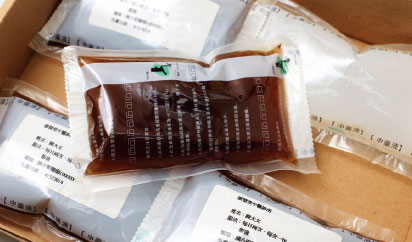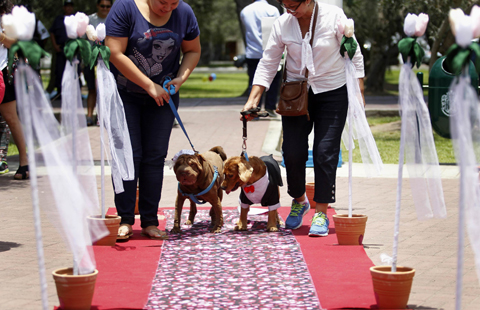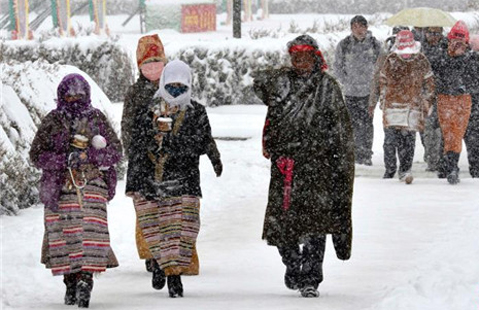Thinking local in going global
Updated: 2015-02-13 14:15
By Selena Li in Hong Kong(China Daily USA)
|
||||||||
|
Packaged TCM herbs and colorful informational posters help increase the appeal of treatments. |
The government of Hong Kong continues to push for the internationalization of its traditional Chinese medicine (TCM) industry, with this year's Policy Address proposing a Chinese medicine testing center to further boost the competitiveness of a "Made in Hong Kong" international benchmark.
The Department of Health launched the Hong Kong Chinese Materia Medica Standards (HKCMMS) project in 2002, and has established quality standards for 200 Chinese Materia Medica. The Latin term translates as "medical materials."
The proposed testing center, said a department spokesman, will "study the feasibility of expediting the setting of reference standards for crude herbs or to include the study of decoction pieces in the HKCMMS project, to meet the needs of the Chinese medicine industry and the public."
The standards, the department believes, can be used by the Chinese medicine industry as reference points for safety and quality of materials.
Herbs are simply medicinal foods, and as a result of millennia of study by TCM practitioners, a very extensive range of health conditions are known to respond well to herbal therapy.
However, the modern medicine industry questions TCM, branding it as not validated through scientific process, and many want the same standards to apply to TCM and Western medicine.
The selected herbs in the Materia Medica Standards, including Radix Ginseng and Cordyceps, are commonly used in the local community and command a high economic value in the market. But they also draw international concerns over their safety and quality.
Growth in demand for TCM herbal or traditional products in Hong Kong was spurred in the past five years by rising immigration from the mainland and increasing "shopping tourism" due to higher taxes on the mainland, says market researcher and data provider Euromonitor.
Euromonitor also notes that Hong Kong is witnessing growing consumer awareness of TCM, with greater interest in packaged proprietary Chinese medicine products. TCM products worth HK$ 3.25 billion were sold in Hong Kong in 2013.
Current regulations mandate that proprietary Chinese medicines must first be registered by the Chinese Medicines Board before they can be imported, manufactured and sold in Hong Kong.
"A lot of TCM products are under scrutiny of Good Manufacturing Practices. It is a quality assurance system widely adopted by the drug manufacturing industry worldwide," said Dennis Au, co-founder of the Conduct Chinese Medicine clinics and general secretary of the Hong Kong Association of Traditional Chinese Medicine.
selena@chinadailyhk.com
Most Viewed
Editor's Picks

|

|

|

|

|

|
Today's Top News
China to import more iron ore from Vale
Mexico makes moves to attract more Chinese tourists
Brazil, Peru and China to specify railway details
Growing up recluse in a dazzling world of Manhattan
Apple studies self-driving car: auto industry source
Second-longest railway built overseas by China rolls out
Graft buster publishes corruption cases in environmental sector
2 deadly shootings within hours in Copenhagen
US Weekly

|

|








